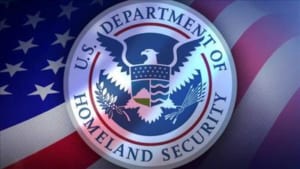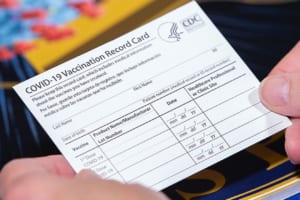On January 4, 2023, the U.S. Citizenship and Immigration Services (“USCIS”) published Form I-956K, Registration for Direct and Third-Party Promoters which is now required to be completed and filed by any person or company that is acting as a direct or third-party promoter or migration agent (a “Promoter”) of:
- A regional center;
- A new commercial enterprise;
- An affiliated job-creating entity; or
- An issuer of securities intended to be offered to immigrant investors in connection with a particular capital investment project.
This registration requirement for Promoters was established in the EB-5 Reform and Integrity Act of 2022 (“RIA”) passed into law in March 2022 as one of many provisions to increase transparency and protection for investors. The relevant part of the RIA reads:
“Direct and third-party promoters (including migration agents) of a regional center, any new commercial enterprise, an affiliated job-creating entity, or an issuer of securities intended to be offered to alien investors in connection with a particular capital investment project shall comply with the rules and standards prescribed by the Secretary of Homeland Security and any applicable Federal or State securities laws, to oversee promotion of any offering of securities related to the EB–5 Program, including—
(I) registration with U.S. Citizenship and Immigration Services, which—
(aa) includes identifying and contact information for such promoter and confirmation of the existence of the written agreement required under clause (iii); and
(bb) may be made publicly available at the discretion of the Secretary;
(II) certification by each promoter that such promoter is not ineligible under subparagraph (H)(i);
(III) guidelines for accurately representing the visa process to foreign investors; and
(IV) guidelines describing permissible fee arrangements under applicable securities and immigration laws.”
Form I-956K is a partial response to this Part K of the RIA. The Form does not address sub-parts (III) and (IV).
Neither the RIA language nor Form I-956K instructions further defines who are direct, third party promoters or migration agents. The term “migration agent” is especially subjective. Nevertheless, the language is sufficiently broad that any person or company that will promote regional centers, new commercial enterprises and job creating entities in the EB-5 space, and especially any person or company that receives any compensation for introducing an investor to any regional center or investment opportunity, should register by filing Form I-956K.
Regional centers, new commercial enterprises and job creating entities should also take great care in ensuring that anyone promoting or receiving compensation should be properly registered to avoid potential civil, criminal and administrative penalties.
There is no filing fee for Form I-956K.
If you are a direct, third-party promoter or migration agent and would like advice and assistance in completing and filing Form I-956K, contact us now at info@enterlinepartners.com and speak with a U.S. immigration attorney in Ho Chi Minh City, Manila and Taipei.
ENTERLINE & PARTNERS CONSULTING
Ho Chi Minh City, Vietnam Office
Suite 601, 6th Floor, Saigon Tower
29 Le Duan Street
Ben Nghe Ward, District 1
Ho Chi Minh City, Vietnam
Tel: +84 933 301 488
Email: info@enterlinepartners.com
Facebook: Enterline & Partners – Dịch vụ Thị thực và Định cư Hoa Kỳ
Website: http://enterlinepartners.com
Manila, Philippines Office
Tel: +63 917 543 7926
Email: info@enterlinepartners.com
Facebook: Enterline and Partners Philippines
Website: https://enterlinepartners.com/language/en/welcome/
Copyright 2023. This article is for information purposes only and does not constitute legal advice. This article may be changed with or without notice. The opinions expressed in this article are those of Enterline and Partners only.








